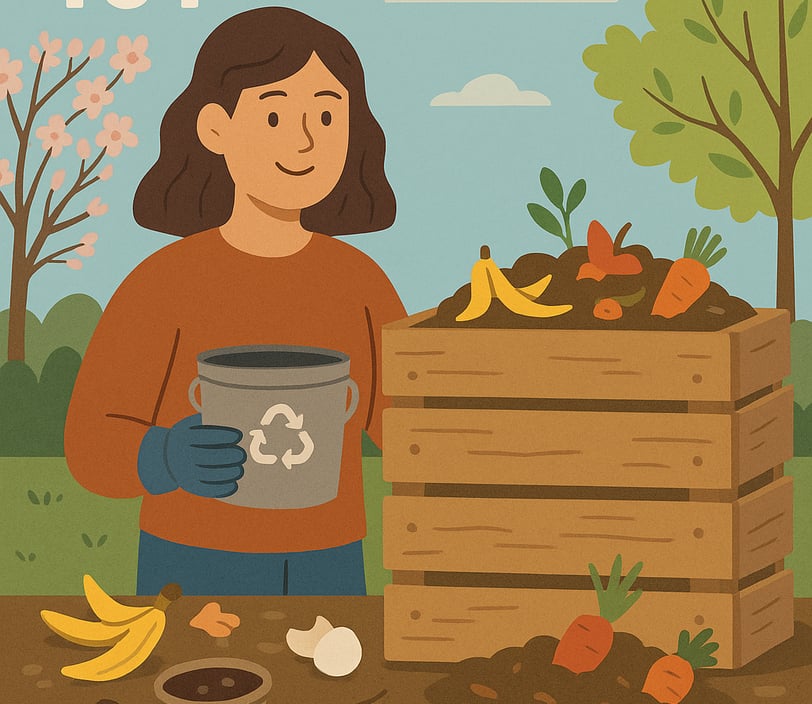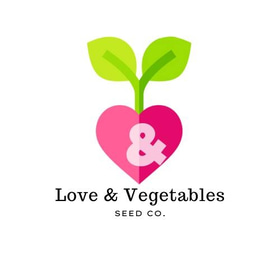60 Heirloom Seed Varieties – Only $50! 🌱 Free Shipping
Composting 101: Turn Kitchen Scraps into Garden Gold
Start composting this spring! Learn how to turn kitchen scraps and yard waste into nutrient-rich soil. Our beginner-friendly March composting guide covers what to use, what to avoid, and how to keep your pile thriving.
ORGANIC GARDENING TIPSGARDEN PROJECTS & DIYBEGINNER GARDENING ADVICE
Keith Kalm
3/17/20252 min read


Composting is one of the easiest, most rewarding ways to reduce waste, improve your garden, and feel more connected to the growing cycle. And there’s no better time to start than March—just before planting season kicks off in full swing.
Whether you’re brand new or need a refresher, this guide covers the basics of composting at home using food scraps, yard waste, and a little patience.
What is Compost?
Compost is decomposed organic matter—think food scraps, leaves, and garden waste—that transforms into rich, dark, nutrient-dense soil. Gardeners call it “black gold” for a reason: it feeds your plants, improves soil structure, and boosts water retention.
What You Can Compost
✅ Greens (nitrogen-rich):
Fruit and veggie scraps
Coffee grounds and tea bags
Plant trimmings
Fresh grass clippings
✅ Browns (carbon-rich):
Dry leaves
Shredded newspaper or cardboard
Straw or hay
Egg cartons (non-glossy)
🚫 Avoid These:
Meat, dairy, and grease
Diseased plants
Pet waste
Glossy or plastic-lined paper
How to Start Composting
1. Choose a Bin or Spot
Use a compost tumbler, plastic bin, wooden pallet bin, or just a backyard pile. Pick a spot with good drainage and partial shade if possible.
2. Layer Greens and Browns
Start with a layer of browns, then alternate with green material. Aim for a 2:1 ratio (2 parts browns to 1 part greens).
3. Turn or Stir Weekly
Aerating your pile speeds decomposition. Mix with a pitchfork or compost crank every week or two.
4. Keep It Moist (Like a Wringed-Out Sponge)
Too dry? Add water and more greens. Too wet? Add more browns and stir.
When Will It Be Ready?
Depending on your setup and climate, compost takes 2–6 months to break down. It’s ready when:
It’s dark, crumbly, and earthy-smelling
You no longer recognize the original materials
Troubleshooting Tips
Problem Cause Fix Bad smell Too much green/wet material Add browns and stir Dry and slow Not enough water Moisten and turn Attracting pests Food scraps too exposed Bury them in center of pile
Compost & Your Garden
Use finished compost to:
Mix into planting beds or containers
Top-dress your lawn or flower beds
Brew compost tea to water seedlings
Boost soil health naturally, without synthetic fertilizers
Start Now with a Simple Scrap Bucket
Keep a small countertop bin or bucket to collect kitchen scraps. Empty it into your outdoor pile a few times per week.
Love and Vegetables: Helping you grow less waste and more life—one bucket at a time.
Seeds
Quality organic non-GMO vegetable seeds for sale.
Shop
Grow
seed@loveandvegetales.com
+1 (570) 212-9613
© 2025. All things considered.
